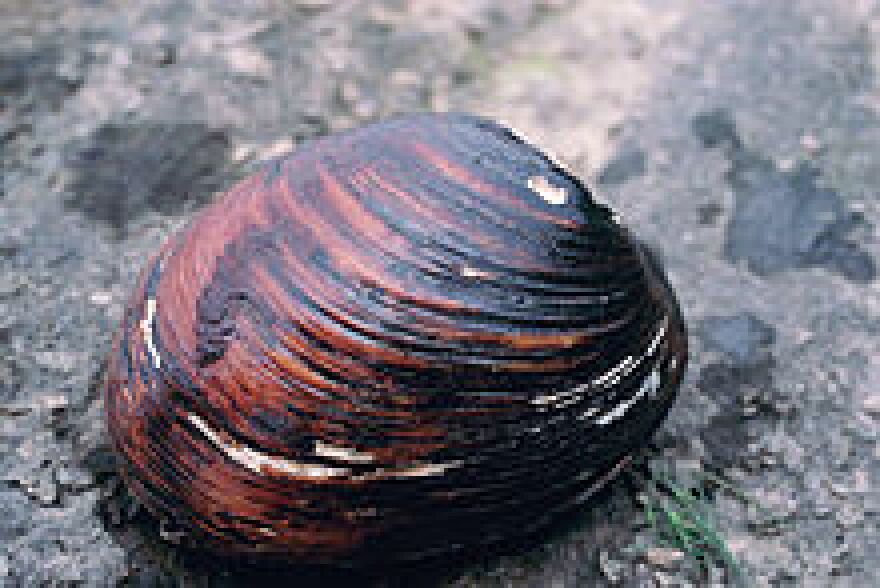By Erica Peterson
http://stream.publicbroadcasting.net/production/mp3/wkms/local-wkms-991415.mp3
Louisville, KY – Tigers, grizzly bears, sea turtles and humpback whales have long been mascots of endangered species. But then there's the pink mucket mussel, which once peppered river bottoms in Kentucky, but has since been decimated by pollution.
Now, scientists are now hoping to re-establish healthy populations of the mussels. WFPL's Erica Peterson went along with a team to the Green River.
"You better not get on my right side! Stand on this side because as soon as I blow my snorkel, you'll be in the direct path of my water."
Monte McGregor is going under. Into the Green River, just outside of Mammoth Cave National Park.
Every time he comes up, McGregor's colleagues hand him four baby mussels to push into the river bed. The mussels are tiny a little bit smaller than a penny.
"These animals today that we're releasing, the pink mucket Lampsilis abrupta is the scientific name are just as rare as things you see at the Louisville Zoo or out in the wild in Africa."
McGregor is trying to change that. He's an aquatic scientist with the Kentucky Department of Fish and Wildlife and he works in one of the nation's few mussel hatcheries. McGregor and his staff raise endangered species in the lab and then release them into healthy waterways.
Nobody's going to put the pink mucket on a bumper sticker as a call to action for the environment, but what McGregor's doing is restoring an essential part of the river ecosystem.
The mussels act as filters, consuming bacteria and cleaning the water. McGregor says these bivalves are a good barometer of a river's general health.
These animals are probably the most sensitive animals that live in the rivers and streams today. They're similar to a canary in a coal mine. So if the canary dies, there's no oxygen. Same thing in the river. If these mussels are dying off, then something's going on in the water that's causing that water not to be clean anymore.
Besides killing mussels, pollution also wreaks havoc on their sex lives. Okay so the muckets don't exactly have sex, but their reproduction is a team sport.
It takes bass to make more muckets. When a female mucket is fertilized, she incubates the fetuses for awhile. Then she puts out a lure to attract bass. When the fish bites, the fetuses spray out and cling on. They stay on the bass for weeks, before dropping off.
"It's not easily done. There's a lot of chances for that chain of events to break down."
Leroy Koch is a scientist with the U.S. Department of Fish and Wildlife.
"All they really need to do is replace themselves throughout their lifetime to keep their population stable. But I think often they're not even able to do that. So the immense numbers that females produce and that process, it's not real conducive to a quick population growth."
By growing them in a hatchery and releasing them into the river, Koch and McGregor hope to give the muckets a fighting chance in their natural habitat. The Green River has started to recover from years of pollution and now a single 10-mile stretch contains about 16 percent of all the species in the country.
Monte McGregor is in the river, too, finishing the process of pushing more than 100 muckets into the soft river bottom.
Is it hard to say goodbye to your babies like this?
No, this is great! This is a great day for this!
Koch looks on from the middle of the river.
"It's taken us a long time to get to this point. It's taken many years, many decades, to lose the mussel resource. It's going to take a while to recover. It's because of the condition of our streams. Everything that we put on the property, on the land, flows downstream. For mussels, it's pretty remarkable that we have as many left as we do."

